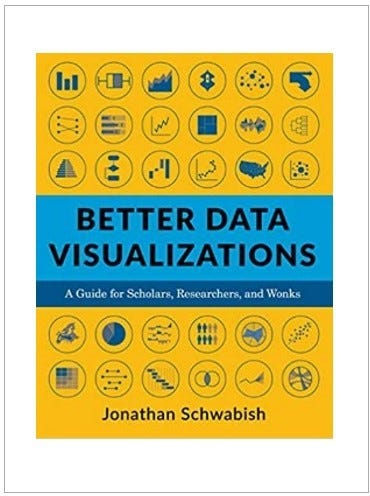Great summer reads: Books AI experts recommend
Picks from Oxford's business school dean, a tech company CEO, AI executives and top professors
June 24, 2022

Picks from Oxford's business school dean, a tech company CEO, AI executives and top professors
Trees are awash with green all over the Western hemisphere, heralding the start of summer. After two years of being battered by the COVID-19 pandemic, travel is slowly picking up again, and many holiday-goers are heading to the beach. It is customary to use these months as an opportunity to continue to learn and refresh one’s thinking.
To help AI Business readers achieve this goal, Mukul Pandya, former senior fellow at Wharton’s AI for Business program, reached out to experts in academia and business to identify a few books about artificial intelligence that you could read this summer to keep honing your knowledge. The books range from those providing insight into how humans should work with AI algorithms to ways of capturing visual insights from AI-generated data.
This wide array of books might be a rich diet for the summer, but it is a substantial list worth considering -- even if your perusing spills over into the fall. Happy reading!
Soumitra Dutta, dean of Oxford University’s Saïd Business School
He recommends "Human Compatible" by Stuart Russell.
“I had the privilege of studying under Professor Russell’s direction when I was a graduate student at the University of California, Berkeley,” Dutta said. “He is one of the leading minds in AI, and he has highlighted critical issues on the human-AI interface in the book. Getting this interface right will be very important for ensuring that we are able to use AI for the good of society.”
Kartik Hosanagar, faculty co-director of the AI for Business program at the Wharton School of the University of Pennsylvania
Kartik suggested reading Pedro Domingos's "The Master Algorithm: How the Quest for the Ultimate Learning Machine Will Remake Our World."
“Most AI today don’t really represent true intelligence,” he said. “They are good at one single task and trained by collecting massive amounts of data for that one task. As a result, Alexa cannot drive a car and a chess-playing AI program cannot compose music, and so on. This book asks whether there will be a Master Algorithm, one single (universal) algorithm that learns all kinds of tasks from data.”
“The author introduces the different approaches to build intelligence and the research tribes exploring them – Symbolists (with its foundations in Philosophy and Logic), Connectionists (foundations in Neuro/Cognitive Science), Evolutionaries (foundations in Evolutionary Biology), Bayesians (statistical foundations), and Analogizers (Psychology). He also introduces some of his own ideas on what the master machine learning algorithm might look like. It’s a really useful primer for those who are not deeply immersed in machine learning but it’s written for readers with at least a basic engineering and computer science background.”
Hosanagar also recommended "The Second Machine Age: Work, Progress, and Prosperity in a Time of Brilliant Technologies" by Erik Brynjolfsson and Andrew McAfee. “One of the biggest questions surrounding AI is the impact it will have on jobs. Just as manufacturing jobs are affected by mechanical automation, many white- and blue- collar jobs are going to be affected by AI-driven automation in the future.”
“The question is whether AI will be like all technologies in the past, which have created more jobs than they have destroyed, or whether it is unique in its ability to automate and displace human jobs at a faster pace than the jobs it creates. Many commentators have asked the question and there are dozens of books exploring how AI will affect jobs.”
“Among all the books out there on the impact of AI-driven automation, this is one of my favorites. While offering a fundamentally optimistic take, the authors also warn the reader that our education systems will need to change and people will need to upskill themselves and public policy will need to keep up in order for us to successfully manage the transition.”
Hosanagar’s own book, "A Human's Guide to Machine Intelligence: How Algorithms are Shaping Our Lives and How We Can Stay in Control" is tremendously insightful. In a prior interview about his book, he noted that “there’s a lot of buzz around AI and machine learning, which is a sub-field of AI. The conversation tends to either glorify the technology or, in many instances, create fear mongering around it. I don’t think the conversation has focused on the solution, i.e. how are we going to work with AI, especially in the context of making decisions. My book is focused on making decisions through intelligent algorithms.”
Nitin Rakesh, CEO and managing director of Mphasis, an IT services and consulting firm in Bangalore, India (annual revenue $1.4 billion)
He recommended "Machine, Platform, Crowd: Harnessing Our Digital Future" by Erik Brynjolfsson and Andrew McAfee.
He describes the book as a “very interesting read. It discusses the challenges presented by the prospect of superintelligence and how humans might respond, how traditional products and services have been affected and altered by digital platforms, how the integration of products and platforms is underway and how collaborative efforts across the world is supplementing traditional organizations and R&D, and how to evolve to fit in the incoming changes.”
Rakesh also recommended "Competing in the Age of AI: Strategy and Leadership When Algorithms and Networks Run the World" by Marco Iansiti and Karim R. Lakhani.
“This book takes a mostly economic perspective on the impact of technology and AI on increasing automation,” he said. “As AI models blur the lines between industries, strategies rely less on specialized expertise and differentiation based on cost, quality, and branding, and more on business network position, unique data, and the deployment of sophisticated analytics.”
Balakrishna DR, executive vice president and Head of AI at Infosys, an IT services company based in Bangalore, India (annual revenue $12+ billion)
His suggestion: "Machine Learning Design Patterns" by Valliappa Lakshmanan, Sara Robinson and Michael Munn.
“This book focuses on solutions to common challenges in applying machine learning (ML) to real-world problems,” he said.
“It includes relevant code to demonstrate how the techniques are implemented in practice. While the majority of ML books are targeted at ML scientists in academia or industry research labs, this book is primarily for ML engineers in the enterprise. It is a great read, and offers great learning.”
Rajesh Jain, founder of Netcore Cloud, a global marketing technology company offering AI-powered marketing automation and analytics solutions

He recommended "Better Data Visualizations: A Guide for Scholars, Researchers and Wonks" by Jonathan Schwabish. “I bought it during my recent visit (to the U.S) and have been reading it; it’s very good,” he says. “While AI is all about data and learning, representing it visually is equally important for others to understand it and consume it for making decisions. This book does exactly that. It is a great complement for any AI data scientist.”
Seeta Hariharan, AI startup executive who has held top management roles at companies such as IBM and Tata Consultancy Services
“While there are several books on AI that are excellent, I think the following book would be useful: 'Architects of Intelligence: The Truth About AI from People Building It' by Martin Ford."
"In this book, Ford publishes perspectives from 23 leading AI experts. For anyone embarking on the AI journey, this is a must read. And, in my view, Martin’s books are well organized and keep a reader’s attention from the beginning to the end.”
Greg Shea, adjunct professor of management and senior fellow at Wharton’s Center for Leadership and Change Management
“Perhaps the largest challenge regarding AI for most of us amounts to gaining a basic working understanding of just what it is and why it matters,” he said.
“Two books, one published and one forthcoming, should help to do all that. 'Artificial Intelligence: A Guide for Thinking Humans' by Melanie Mitchell, has been published.
In addition, 'Awkward Intelligence: Where AI Goes Wrong, Why It Matters, and What We Can Do about It' by Katharina A. Zweig and Noah Harley, a book scheduled for publication in October 2022, is likely of high value,” he said.
“Moving perhaps farther afield and deeper into AI leads to considering how we know and think, for better or worse, since unless we can look at our own thought processes we cannot, in the end, consciously create and develop the thought processes employed elsewhere, e.g., AI."
"Multiple award-winning writers and thinkers, Edward O. Wilson and Steven Pinker, can help any of us to advance our understanding of our thinking and even of knowledge itself. Wilson's 'Consilience: The Unity of Knowledge' argues that causal explanation links all knowledge from science to art."
"'Pinker in 'Rationality: What it Is, Why It Seems Scarce, Why It Matters' explores the nature, importance, and limits of human rationality. They each help us to consider how we do and how we could think.”
You May Also Like
.jpg?width=700&auto=webp&quality=80&disable=upscale)
.jpg?width=700&auto=webp&quality=80&disable=upscale)
.jpg?width=700&auto=webp&quality=80&disable=upscale)
.jpg?width=300&auto=webp&quality=80&disable=upscale)
.jpg?width=300&auto=webp&quality=80&disable=upscale)
.jpg?width=300&auto=webp&quality=80&disable=upscale)
.jpg?width=300&auto=webp&quality=80&disable=upscale)
.jpg?width=300&auto=webp&quality=80&disable=upscale)